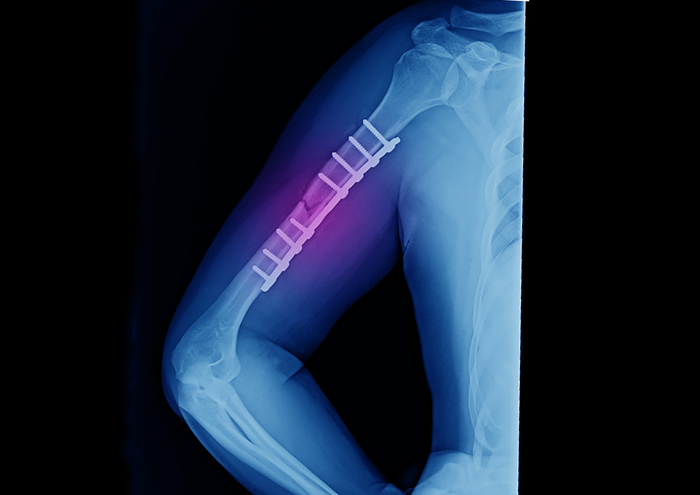Open Reduction Internal Fixation (ORIF) Surgery in Kondapur, Hyderabad
Open reduction internal fixation (ORIF) is a surgical procedure that helps to treat severe fractures. The surgery is done to fix the fractures that are unstable and involve one or more joints. In this surgery, the surgeon gives an incision for bone realignment. He will fix the broken bones by using metal plates and screws.

How Is This Procedure Performed?
Open reduction internal fixation can be done to treat the fractures of your arms or legs including shoulder joint, hip joint, knee joint, or ankle joint at Apollo Kondapur. Your doctor may have to take an immediate decision for doing this procedure. Before the procedure, your doctor will ask you to stop taking any medications.
The physician will do a physical examination, blood test, X-ray, CT scan, or MRI scan. This will help the surgeon to see the broken bone. The procedure is divided into two parts. It may take several hours to perform the procedure depending on the severity of the fracture.
You will be given general anaesthesia to put you into a deep sleep so that you do not feel any pain or discomfort during the procedure.
The first step is open reduction. In this part, the surgeon will cut into the skin to move the bone back into its original position.
The second part involves fixing the bones together by using metal rods, screws, or plates. The type of hardware used in the surgery depends on the location and severity of the fracture. In the end, the surgeon will close the site with stitches and apply a bandage. Your limb will be put in a cast or splint.
What Are The Benefits Of ORIF Surgery?
The benefits of ORIF surgery are:
- It is a successful surgery and helps in healing severe bone fractures
- People can start doing their normal activities after complete recovery
- The patient does not have to wear a plaster for a long time
- It is the best option for most complex fractures
What Are The Side Effects Of ORIF Surgery?
The side effects of ORIF surgery are:
- Infection at the site of incision
- Excessive bleeding from the site
- Clotting of blood
- Adverse effects of anaesthesia
- Damage to the nerve and blood vessel
- Damage to the tendon or ligament
- Improper healing of bone
- Reduced mobility of the affected bone or joint
- Damage to the muscle that causes muscle spasm
- Severe pain at the site
Who Is The Right Candidate For ORIF?
ORIF is done in the following cases:
- If your bone has multiple breaks
- If the bone moves out from its original position
- If the bone comes out of the skin
- ORIF is also done if the previously realigned bone does not heal properly
Request an appointment at Apollo Spectra Hospitals, Kondapur
Call 1860-500-2244 to book an appointment
When to call your surgeon?
If you are not feeling better after the surgery or you experience the following, you should contact your doctor:
- If your pain is not getting better after taking pain medication
- There is more redness, swelling, bleeding, or discharge from the site
- High fever and chills
- If you feel numbness or tingling at the injury site
- If you feel difficulty in moving your affected arm or leg
- If your cast is too tight
- If you have irritation or burning under the cast
- If you have cracks in a cast
- If your fingers become black or change in colour
Open reduction internal fixation is a surgery needed to fix multiple fractures in your bone; it has to be done immediately. The broken bones are fixed using metal rods, screws, and other such things. The surgery has excellent results.
Your doctor will send you home the next day. In some cases, you may have to stay for longer if any problem arises.
The time depends on the severity of the fracture. It also depends on the location and bones involved in the fracture.
It may take a long time to recover from ORIF surgery. In some cases, it takes almost a year to recover. Recovery time depends on the broken bone and the severity of the fracture.
Symptoms
Our Top Specialities
NOTICE BOARD
CONTACT US
CONTACT US
 Book Appointment
Book Appointment


.svg)
.svg)
.svg)
.svg)








